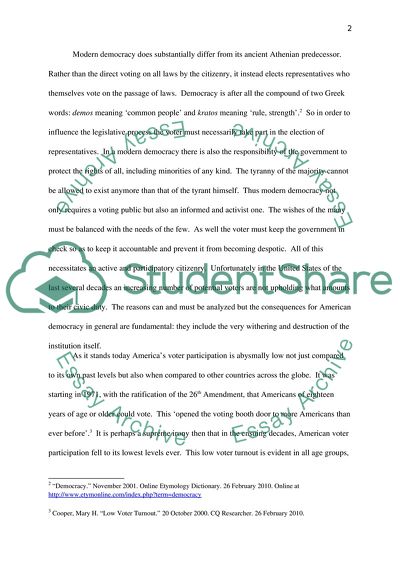Cite this document
(Voter Apathy in the US and Its Implications for the Quality of Case Study, n.d.)
Voter Apathy in the US and Its Implications for the Quality of Case Study. Retrieved from https://studentshare.org/politics/1733689-what-are-the-main-perceived-causes-of-voter-apathy-in-the-us-and-to-what-extent-are-they-considered-a-threat-to-the-quality-of-american-democracy
Voter Apathy in the US and Its Implications for the Quality of Case Study. Retrieved from https://studentshare.org/politics/1733689-what-are-the-main-perceived-causes-of-voter-apathy-in-the-us-and-to-what-extent-are-they-considered-a-threat-to-the-quality-of-american-democracy
(Voter Apathy in the US and Its Implications for the Quality of Case Study)
Voter Apathy in the US and Its Implications for the Quality of Case Study. https://studentshare.org/politics/1733689-what-are-the-main-perceived-causes-of-voter-apathy-in-the-us-and-to-what-extent-are-they-considered-a-threat-to-the-quality-of-american-democracy.
Voter Apathy in the US and Its Implications for the Quality of Case Study. https://studentshare.org/politics/1733689-what-are-the-main-perceived-causes-of-voter-apathy-in-the-us-and-to-what-extent-are-they-considered-a-threat-to-the-quality-of-american-democracy.
“Voter Apathy in the US and Its Implications for the Quality of Case Study”. https://studentshare.org/politics/1733689-what-are-the-main-perceived-causes-of-voter-apathy-in-the-us-and-to-what-extent-are-they-considered-a-threat-to-the-quality-of-american-democracy.


